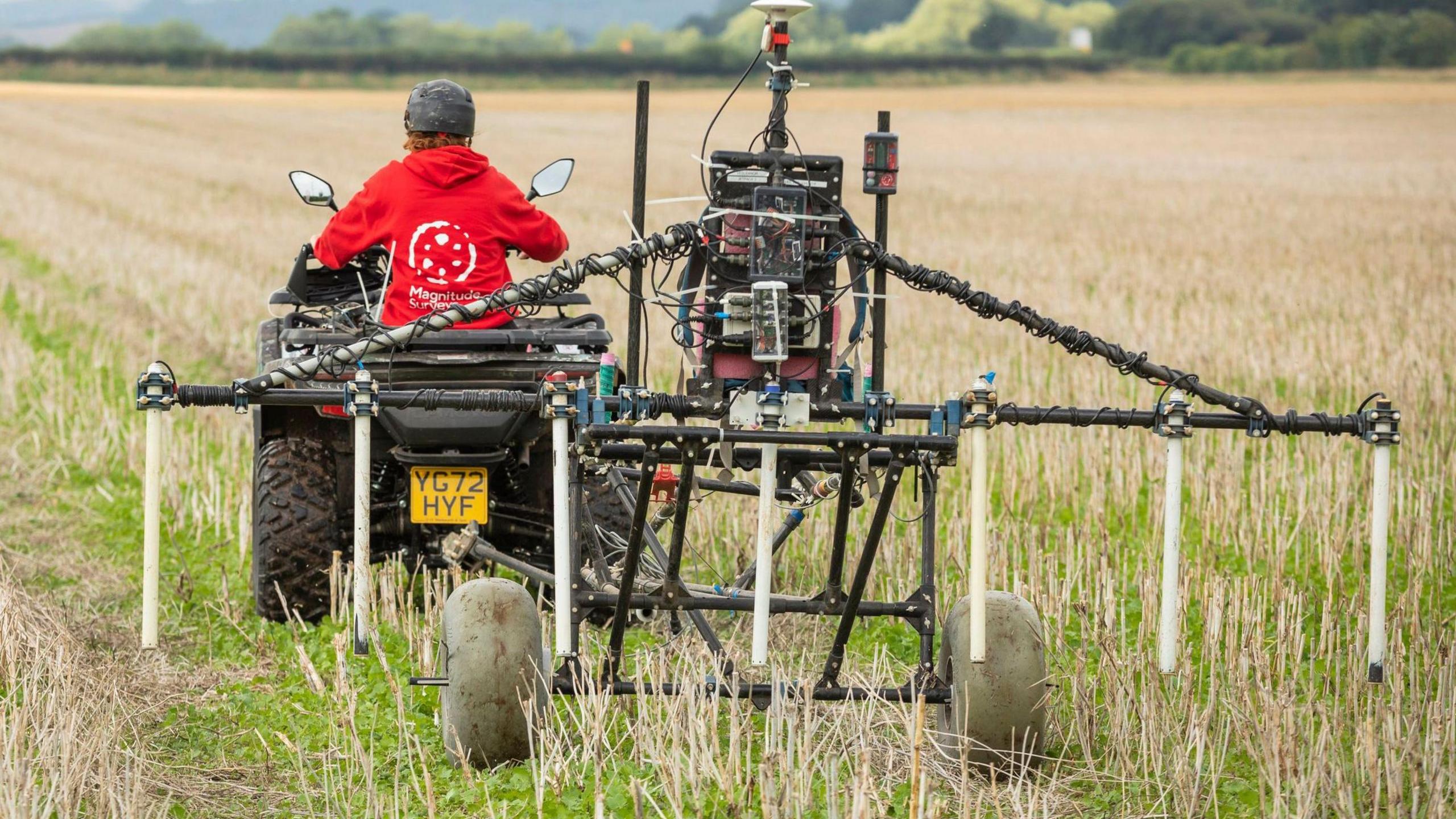Amateur archaeologists make Roman finds
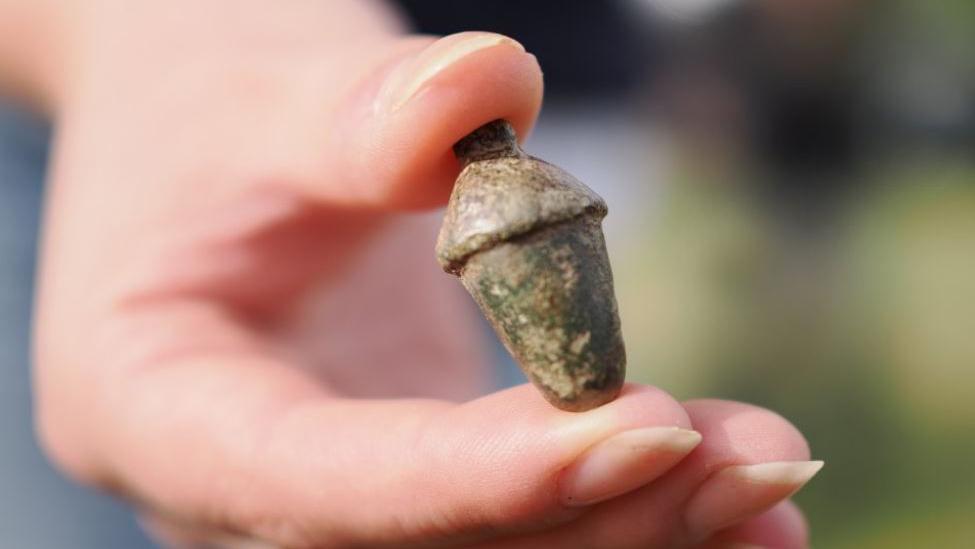
The metal acorn is believed to have been ornamental
- Published
A decorative metal acorn, part of an incense bowl and Roman coins are among the items found in a public dig at a National Trust estate.
People were invited to join an archaeological excavation at Attingham Park near Shrewsbury in September.
The pilot project followed surveys of the ground last year, which uncovered evidence of Roman villas and an Iron Age homestead.
During the two-week dig, archaeologists led by Time Team's Matt Williams worked alongside volunteers to explore three trenches and several test pits.
Schools, youth groups, and local community organisations were also involved in the surveying, washing and excavations.
As well as the artefacts, they uncovered the remains of an Iron Age roundhouse, a Roman industrial complex and what is believed to be a Roman shrine.
The archaeologists said the metal acorn was likely to be a decorative feature from a Roman furniture item, such as a small box.
They also found a ceramic object, thought to be the base of a candlestick and a metal helmet handle believed to be part of Roman military gear.
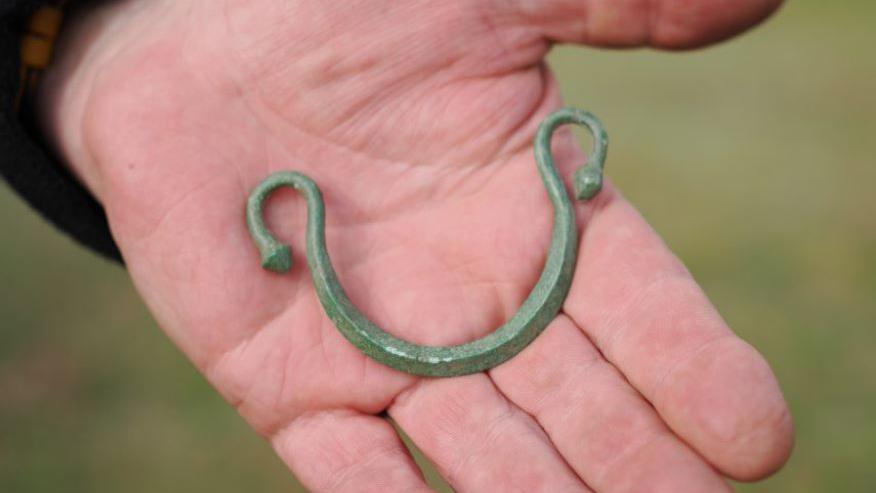
Another of the items found was a curved piece of metal, believed to have been a helmet handle
Mark Agnew, general manager of the Attingham Estate, said the project had been "an exciting new approach for the trust".
He added: "The work aims not only to connect people with the past, but also to deepen understanding of the wider history of Attingham Estate."
Dr Roger White, an expert at the nearby Wroxeter Roman City, said: "This fortnight has made a significant, and important, contribution to our understanding of Wroxeter and its immediate surroundings.
"The dig may have been small in scale, but its impact is enormous."
Get in touch
Tell us which stories we should cover in Shropshire
Follow BBC Shropshire on BBC Sounds, Facebook, external, X, external and Instagram, external.
Related topics
More stories like this
- Published21 January
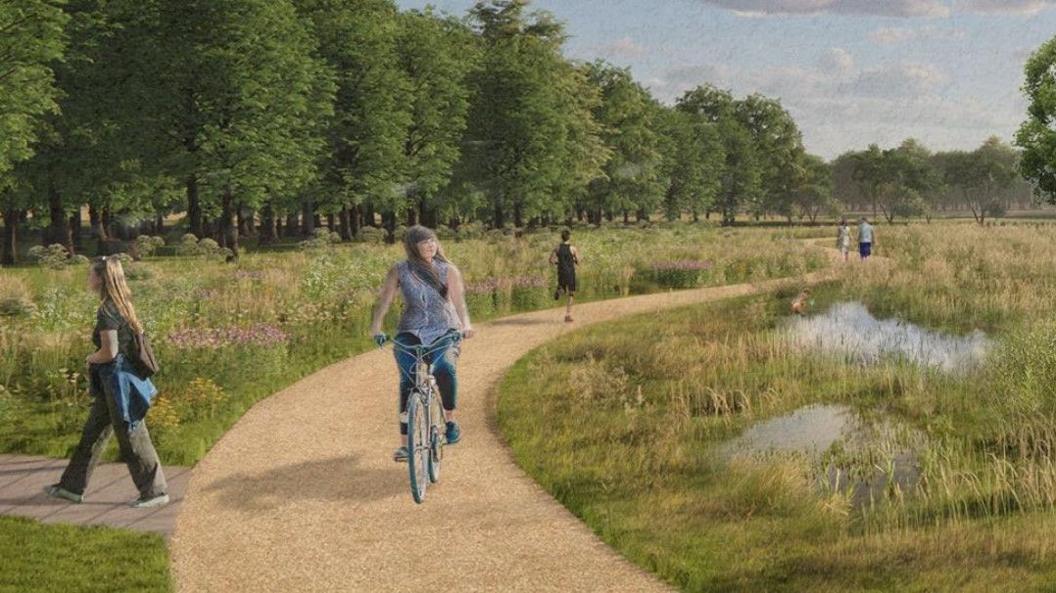
- Published12 February
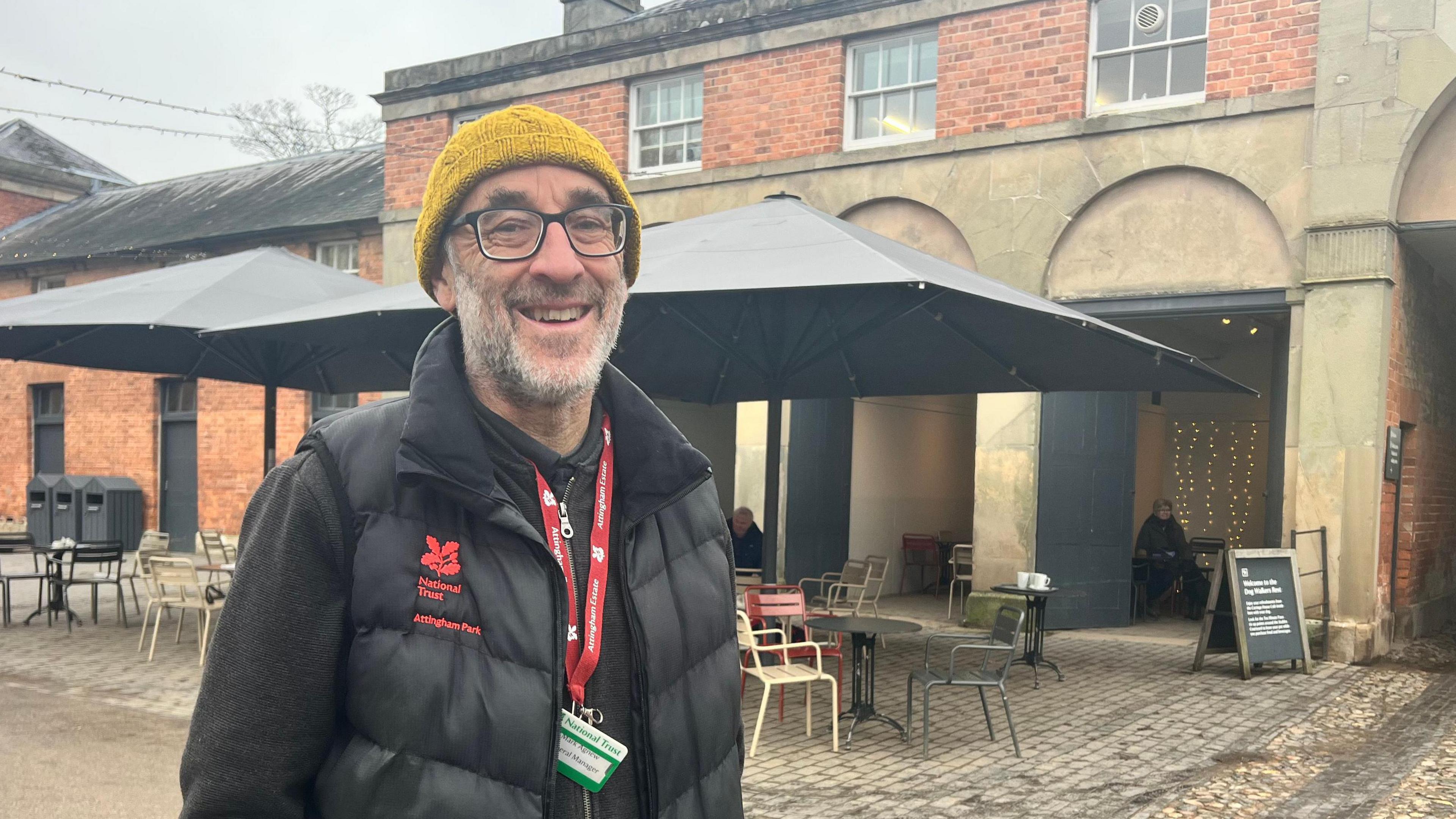
- Published10 February
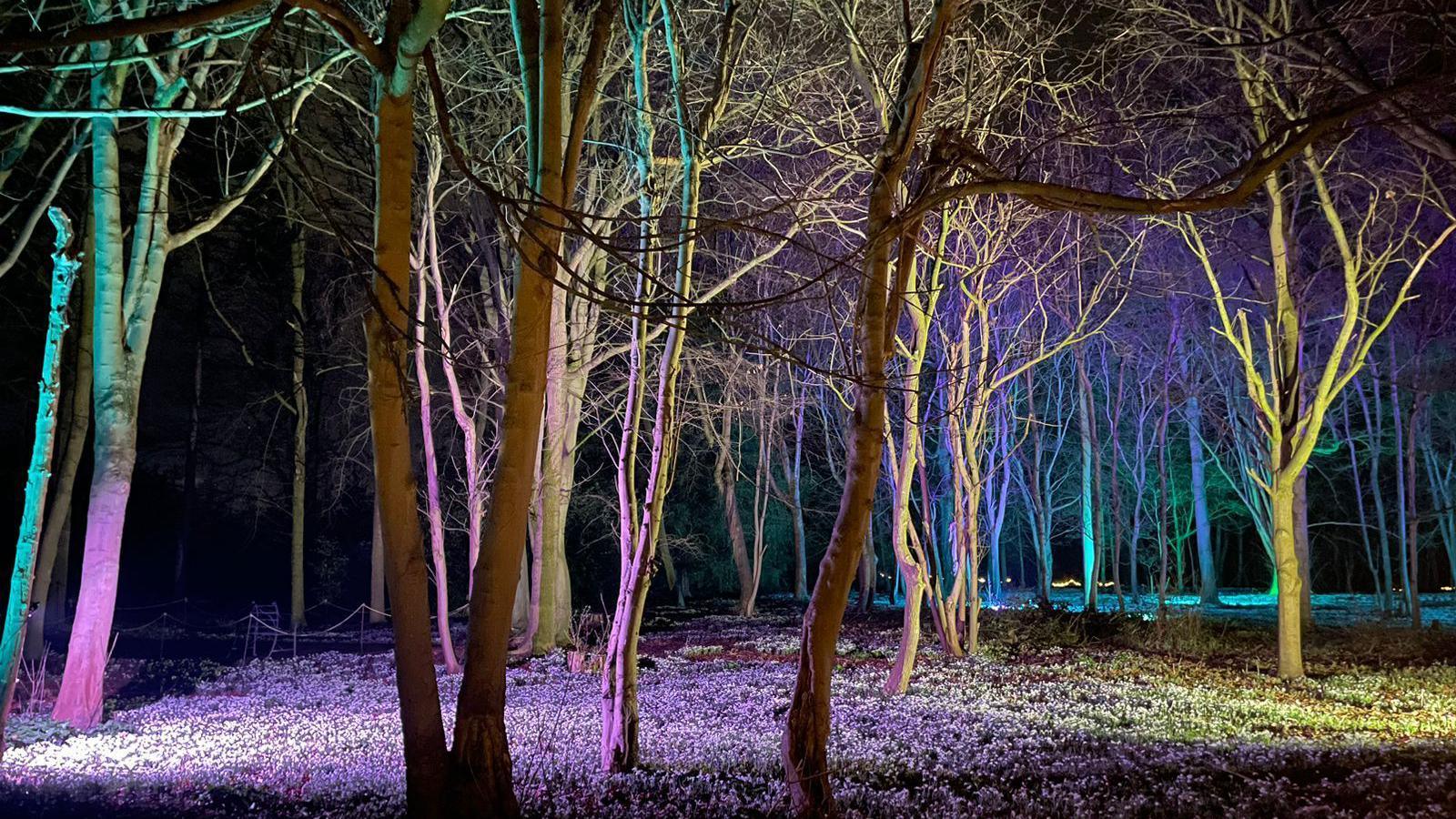
- Published4 July 2024
